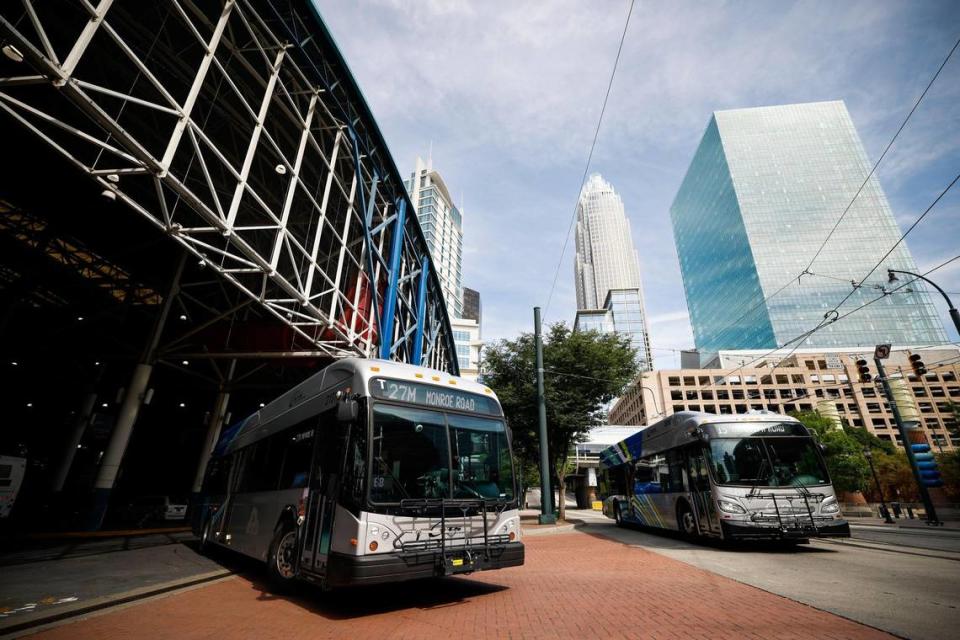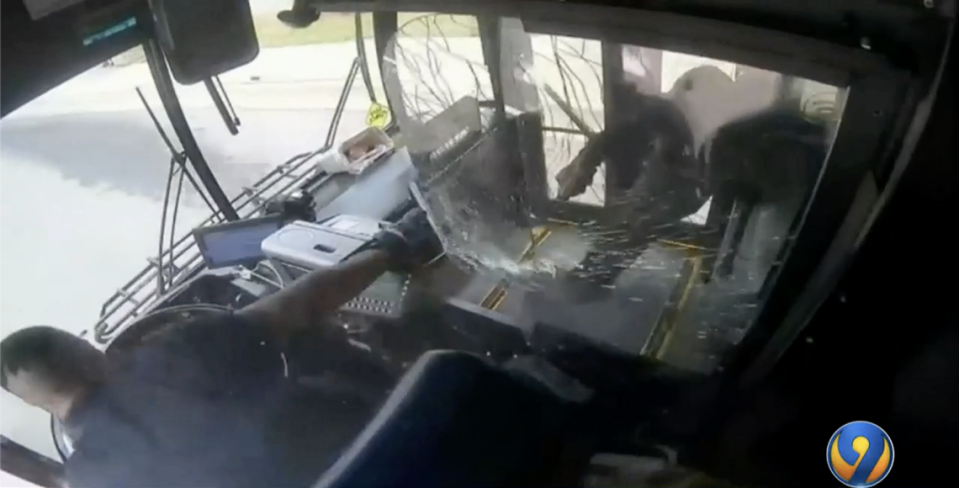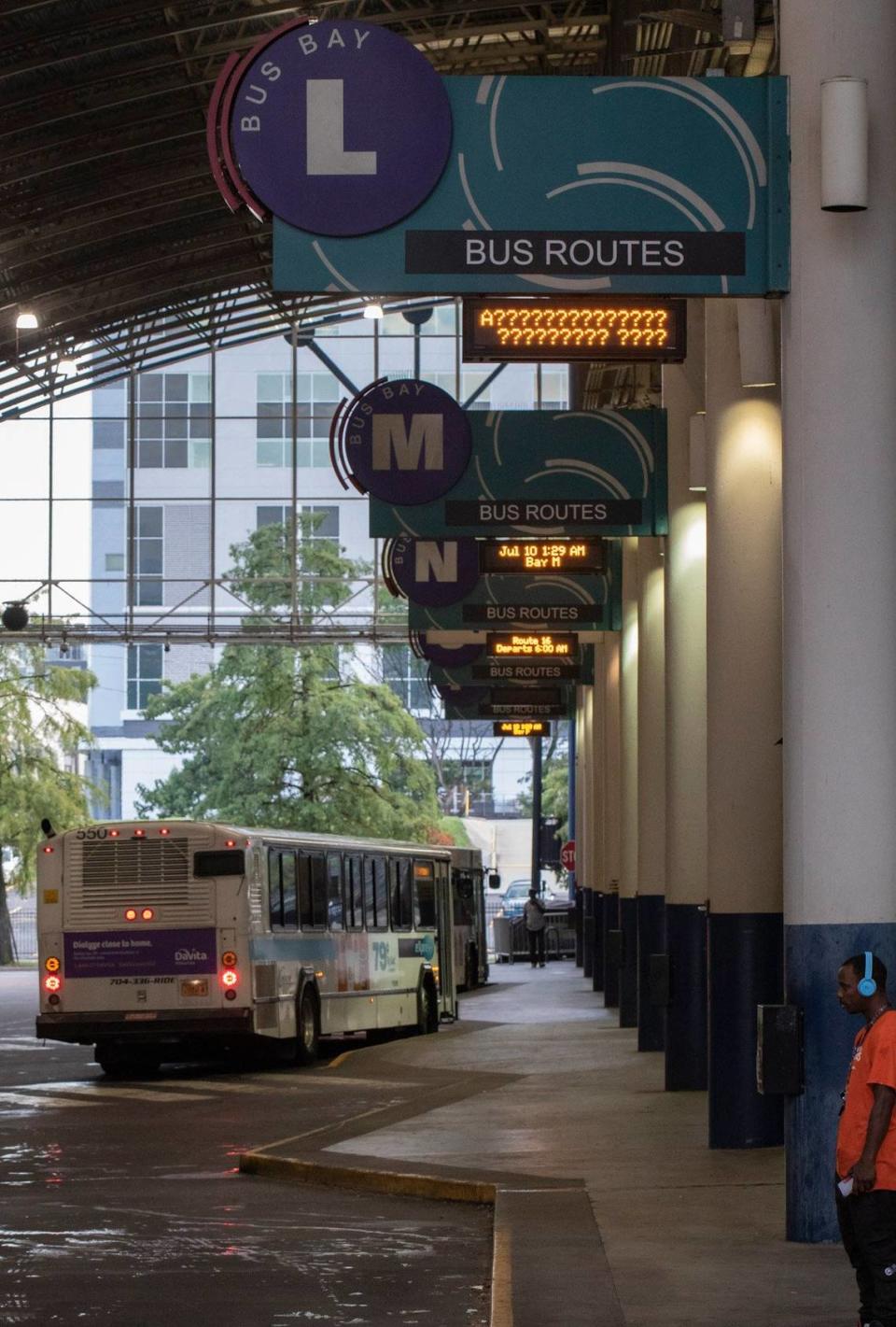What riders should know about National Express, the new company in charge of CATS buses
After a tumultuous year, a new company is taking over bus operations for the Charlotte Area Transit System, and it’s one that already has ties to the Carolinas.
The Charlotte City Council voted unanimously Monday to hand over the reins of CATS’ largest division to National Express Transit for an estimated annual cost of $1.58 million. The transition to the new company is expected to take place in February and will bring “a more integrated approach” to bus management, CATS leadership said.
The new contract comes as CATS’ long-standing relationship with RATP Dev USA, the company that currently employs Charlotte’s bus drivers, comes to an end. RATP Dev made headlines earlier in the year as it struggled to negotiate a labor agreement with the union representing local bus drivers, leaving Charlotte on the verge of a strike.
There also have been safety concerns on CATS buses in recent years, including a May shooting between a bus driver and rider that left both seriously injured and a 2022 road rage shooting that killed a bus driver.
CATS is legally required to use a contractor to oversee day-to-day bus operations and maintenance because N.C. law prevents cities from negotiating with unions, but federal law requires public transit systems that get federal funding to allow collective bargaining.
National Express, a subsidiary of an international transportation company, is already part of public transit in some other major cities in the region and around the country.
Past problems with CATS bus operations

CATS has contracted with RATP-Dev to run its bus system since 2003, according to a presentation by interim CEO Brent Cagle to the City Council on Nov. 13.
The bus operations division, Cagle said, has an $80 million budget, 734 employees and a fleet of more than 250 buses. It’s CATS’ largest division, bigger than its rail and paratransit systems, he noted. The City Council last voted to extend RATP Dev’s contract in February 2019, when they OK’d spending about $2 million for three years and a maximum of $730,000 per year for up to two additional years.
The whole bus system nearly came to a halt in January as union members voted to authorize a strike. An agreement was reached later that month, but that didn’t end labor disputes. In April, RATP-Dev leaders warned in a memo that CATS drivers could face reduced routes and job cuts unless service improved, especially spotty attendance among drivers.
Those issues came between major safety incidents on CATS buses. A 22-year-old man in May was charged with assault with a deadly weapon inflicting serious injuries and other crimes after a shooting on a bus near the Charlotte Premium Outlet Mall. The bus driver, who fired back, wasn’t charged but was “dismissed from his duties.” And in 2022, 41-year-old CATS driver Ethan Rivera died after being shot in what police called a road rage incident.

CATS issued a request for proposals in April for a new bus operations management contract, Cagle said in his November presentation.
RATP-Dev did not put in a bid for a new contract with CATS, Cagle told the City Council. National Express was ultimately chosen for the job out of two applications.
“We’re talking about a pretty small universe of qualified firms,” Cagle said of the number of applicants. “Really, six to 10 firms total.”
What is National Express Transit?
National Express is a subsidiary of the Mobico Group, which serves “nearly a billion bus, coach and rail passengers on four continents,” according to its website.
Some of its largest transit system clients in the U.S. include paratransit operations for the WMATA in Washington, D.C., the MBTA in Boston and PACE in Chicago, Cagle said in his presentation. Paratransit services generally provide more direct transportation than regular buses for people with disabilities, the elderly and other vulnerable populations.
Public transit systems in the Carolinas are also among its 60 clients nationwide.
National Express Transit’s history in the Carolinas
National Express was hired in 2020 by GoTriangle, the public transit system serving the Raleigh-Durham area, to operate its paratransit service, GoDurham ACCESS.
Under that deal, the company manages a fleet of 53 vehicles transporting more than 3,000 people in and around Durham annually.
National Express is also responsible for the operations — including drivers, supervisors and vehicle maintenance — of PART Express, the regional bus system for the Greensboro and Winston-Salem area.
Its deal with Charlotte isn’t the first time it’s taken over a bus system facing challenges and criticisms in the Carolinas.
National Express took over management of CARTA — the transit system serving the Charleston, South Carolina, area — this year after the group sought a new service provider amid reporting on its buses being driven erratically and arriving late, especially for workers who used buses to commute.
The company now handles “the day-to-day operations of CARTA bus and paratransit services in Charleston,” including hiring, training and managing drivers as well as maintenance and customer service, according to the transit system.
Has National Express Transit had trouble in other cities?

National Express has experienced its own issues.
Boston TV station WCVB reported in 2022 on late and missed trips by the MBTA’s paratransit service, “The Ride.” That left riders with disabilities and the elderly without “a lifeline,” the TV station reported. National Express manages “50% of the entire Ride program.”
The company paid $632,557 in fines to the MBTA between January 2019 and June 2021 for late and missed trips and other issues, according to WCVB’s reporting.
And a contingent of National Express drivers walked off the job in the United Kingdom earlier in 2023 amid a pay dispute, leaving hundreds of thousands of bus passengers to navigate travel, the BBC reported. That strike ended after six days with workers getting a 16.2% pay raise.
“We apologize to our customers and the communities we serve for the significant disruption and inconvenience this has caused over the last few weeks. We are pleased to be able to put this behind us and focus on delivering a bus service that customers can rely on,” National Express said in response to the end of the British strike.
A spokesperson for National Express Transit didn’t immediately respond to a request for comment about the company taking over CATS bus operations.


